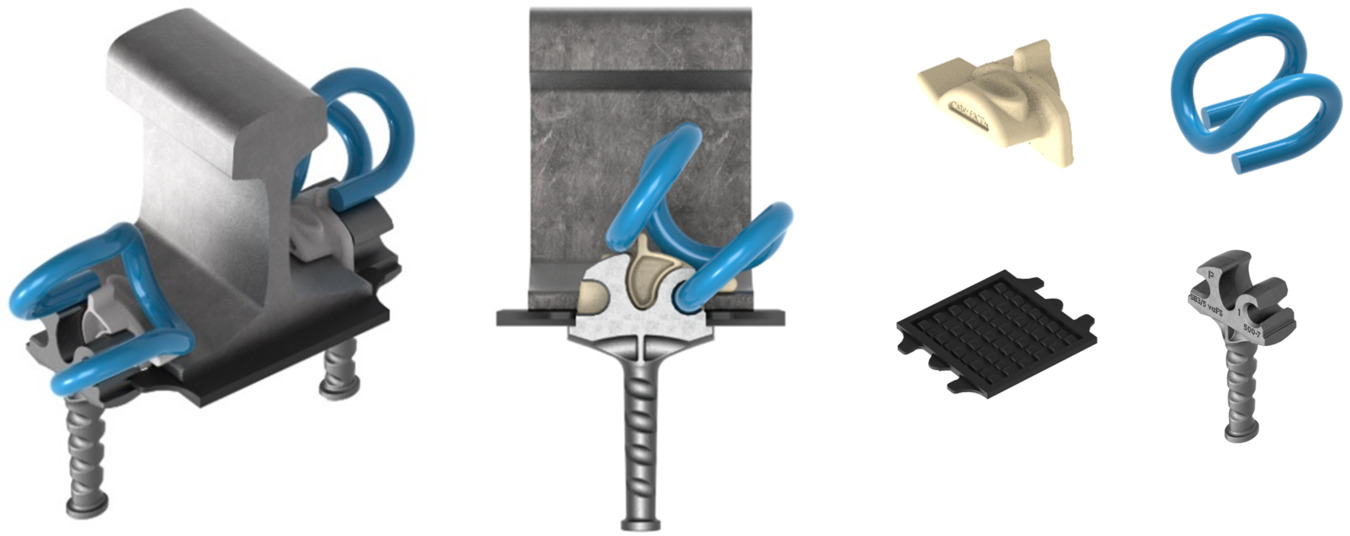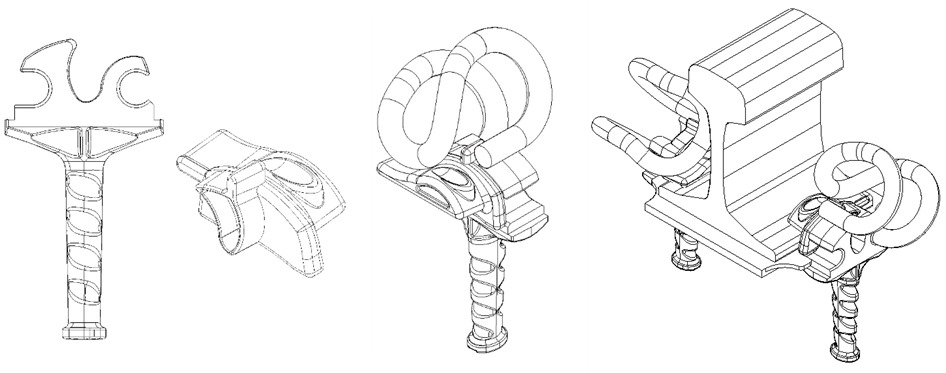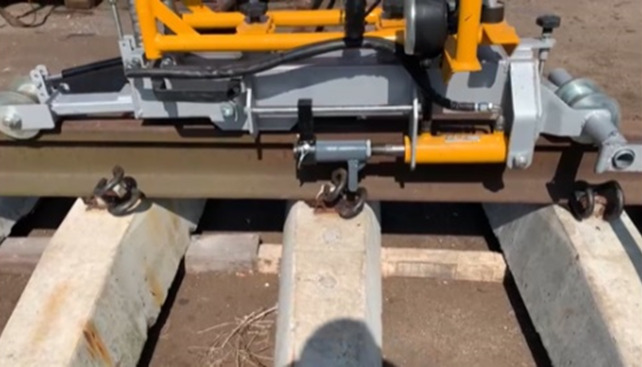Improving Rail Infrastructure: The New SBW4 Rail Fastening System
The SB-type rail fastening system has been a cornerstone of rail infrastructure in Poland for decades, with the SBW3 variant widely recognized for its reliability and durability.
The SB-type rail fastening system has been a cornerstone of rail infrastructure in Poland for decades, with the SBW3 variant widely recognized for its reliability and durability.
Produced by voestalpine Fastening Systems Sp. z o.o. (vaFS), the SBW3 system has long been trusted for securing rails to pre-stressed concrete sleepers. Building on years of experience and innovation, voestalpine Fastening Systems has now introduced the SBW4 rail fastening system—a groundbreaking evolution that addresses assembly challenges and enhances system performance.
Despite its success, the SBW3 system faced limitations in assembly ergonomics and adaptability for modern automated processes. Recognizing these challenges, our engineers undertook a comprehensive R&D initiative in 2019. Supported by the Wielkopolska Regional Operational Programme, the team aimed to improve the SBW3 system with a focus on:

1. Improved Ergonomics
The modified SB3/5 cast iron anchor and WIW60C electroinsulating hold-down part standardize the positioning of the SB4 spring clip. A specially designed tab ensures secure and replicable positioning, simplifying manual assembly. Additionally, a redesigned anchor head reduces the force required during clip clamping, making the process more efficient.

2. Enhanced Electrical Resistance
The PWE6094R rail pad features redesigned lateral fins, reducing water retention and improving electrical resistance to consistently exceed 10 kΩ during testing. This enhancement ensures greater safety margins and compliance with EN 13481-2 standards.
The PWE6094 rail pad of the SBW3 rail fastening system (left) and the PWE 6094R rail pad of the SBW4 rail fastening system (right).
3. Reduced Weight for Sustainability
A hollow design in the SB3/5 anchor head reduces its weight by 20%, lowering production and transportation costs. This change not only enhances economic competitiveness but also reduces the system’s carbon footprint.
4. Automation-Ready Design
The SBW4 system enables seamless integration with automated assembly devices, reducing manual errors and boosting efficiency during rail installation. Tests confirmed that existing Polish market clamping devices can effectively position and secure the SB4 clips, making the system future-ready.

The SBW4 system has passed rigorous testing, including type tests and qualification processes at the Railway Institute in Warsaw, meeting the stringent requirements of EN 13481-2. Each component of the system has been patented, reflecting our commitment to innovation and quality.
The SBW4 system streamlines the assembly process, enabling faster and more consistent track installations. Improved electrical resistance and a reduced carbon footprint further contribute to its appeal. These innovations ensure the system meets modern demands while maintaining a competitive price point.
With the SBW4 rail fastening system, we demonstrate our leadership in railway infrastructure solutions. For more information on the SBW4 system and other innovations, visit: